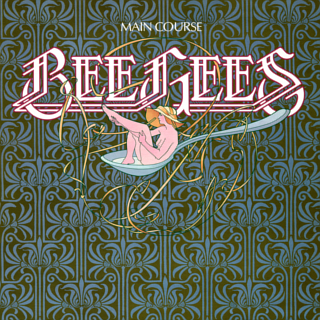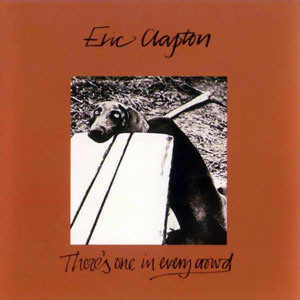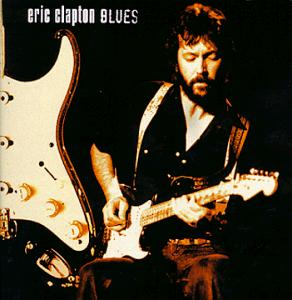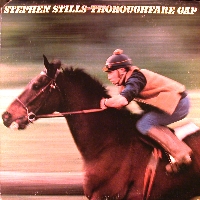
The Bee Gees were a musical group formed in 1958 by brothers Barry, Robin, and Maurice Gibb. The trio were especially successful in popular music in the late 1960s and early 1970s, and later as prominent performers in the disco music era in the mid-to-late 1970s. The group sang recognisable three-part tight harmonies: Robin's clear vibrato lead vocals were a hallmark of their earlier hits, while Barry's R&B falsetto became their signature sound during the mid-to-late 1970s and 1980s. The group wrote all their own original material, as well as writing and producing several major hits for other artists, and are regarded as one of the most important and influential acts in pop-music history. They have been referred to in the media as The Disco Kings, Britain's First Family of Harmony, and The Kings of Dance Music.

461 Ocean Boulevard is the second solo studio album by English musician Eric Clapton. It was released in late July 1974 by RSO Records, after the record company released the hit single "I Shot the Sheriff" earlier in the month. The album topped various international charts and sold more than two million copies.

Yvonne Marianne Elliman is an American singer, songwriter, and actress who performed for four years in the first cast of the stage musical Jesus Christ Superstar. She scored a number of hits in the 1970s and achieved a US No. 1 hit with "If I Can't Have You". The song also reached No. 9 on the Adult Contemporary chart and number 4 on the UK Singles Chart. Her cover of Barbara Lewis's "Hello Stranger" went to No. 1 on the Adult Contemporary chart, and "Love Me" was No. 5; at the time she had 3 top 10 singles. After a long hiatus in the 1980s and 1990s, during which time she left music to be with her family, she made a comeback album as a singer-songwriter in 2004.

Robert Colin Stigwood was an Australian-born British-resident music entrepreneur, film producer, and impresario, best known for managing musicians such as Cream, Andy Gibb, and the Bee Gees; theatrical productions such as Hair and Jesus Christ Superstar; and film productions, including Grease and Saturday Night Fever.

Timepieces: The Best of Eric Clapton is a greatest hits album by British musician Eric Clapton. The album was originally released by RSO/Polydor Records in April 1982. The following year a second volume, Time Pieces Vol.II Live in the Seventies, was released by the label. The album has been reissued several times and has been awarded certifications in several regions. Billboard reported the album sold more than 13,400,000 copies worldwide.

Doyle Bramhall II is an American guitarist, producer and songwriter best known for his work with Eric Clapton and Roger Waters. He is the son of the songwriter and drummer Doyle Bramhall.

Carl Dean Radle was an American bassist who toured and recorded with many of the most influential recording artists of the late 1960s and 1970s. He was posthumously inducted to the Oklahoma Music Hall of Fame in 2006.
Criteria Studios is a recording studio in North Miami, Florida, founded in 1958 by musician Mack Emerman. Hundreds of gold, platinum, and diamond singles and albums have been recorded, mixed or mastered at Criteria, for many notable artists and producers.
Russ Titelman is an American record producer and songwriter. He has to date won three Grammy Awards. He earned his first producing the Steve Winwood song "Higher Love", and his second and third for Eric Clapton's Journeyman and Unplugged albums, respectively. Titelman also produced Clapton's 24 Nights live album of 1990 and the all-blues album From the Cradle, released in 1994.

Main Course is the thirteenth studio album by the Bee Gees, released in 1975 by RSO Records. It was the group's last album to be released by Atlantic Records in the US under its distribution deal with Robert Stigwood. This album marked a great change for the Bee Gees as it was their first album to include mostly R&B, soul and funk-influenced songs, and created the model for their output through the rest of the 1970s. It rejuvenated the group's career and public image, particularly in the US, after the commercial disappointment of their preceding albums. Main Course was the first album to feature keyboardist Blue Weaver who had just left the Strawbs and toured with Mott the Hoople. The album cover with the band's new logo designed by US artist Drew Struzan made its first appearance here.
Humpy Bong were an English folk rock band formed in London in 1970, by former Bee Gees drummer Colin Petersen and Irish folk rock singer Jonathan Kelly.

There's One in Every Crowd is the third solo studio album by Eric Clapton. Recorded shortly after 461 Ocean Boulevard, the album features a style similar to its predecessor but did not enjoy similar commercial success.

Blues is a blues rock compilation album by Eric Clapton released in 1999. The release features songs from Clapton's 1970s RSO albums, as well as some unreleased material from the same era. The second disc features live recordings.

Albhy Galuten is an American technology executive and futurist, Grammy Award-winning record producer, composer, musician, orchestrator and conductor.

Thoroughfare Gap is the fifth studio album by American singer-songwriter Stephen Stills, released in 1978. It was a critical and commercial disappointment that only charted at number 84 in the US. This album is now available as a three-album set on two CDs with Stills & Illegal Stills, having never been released on its own on CD.

The Cream of Clapton is an Eric Clapton compilation album released in 1995. Additionally, the European and U.S.-versions have a different track listings. The European version had already been released as The Best of Eric Clapton in 1991, though without the track "I Can't Stand It".

James Oldaker was an American rock music, blues rock and country music drummer and percussionist.
"Edge of the Universe" is a rock song by the Bee Gees, written by Barry and Robin Gibb from the album Main Course released in 1975, and also released as a B-side of "Nights on Broadway".

Cowboy was an American country rock and southern rock band formed in Jacksonville, Florida, in 1969. The group's main members consisted of songwriters Tommy Talton and Scott Boyer, alongside a rotating group of musicians. They released four albums on the Capricorn Records label in the 1970s: Reach for the Sky (1970), 5'll Getcha Ten (1971), Boyer and Talton (1974), and Cowboy (1977). The song "Please Be with Me"–perhaps their best-known song–featured a performance from Duane Allman. It was also later covered by Eric Clapton on his album 461 Ocean Boulevard (1974).
The following is a list of albums released by the now defunct record label RSO Records.














